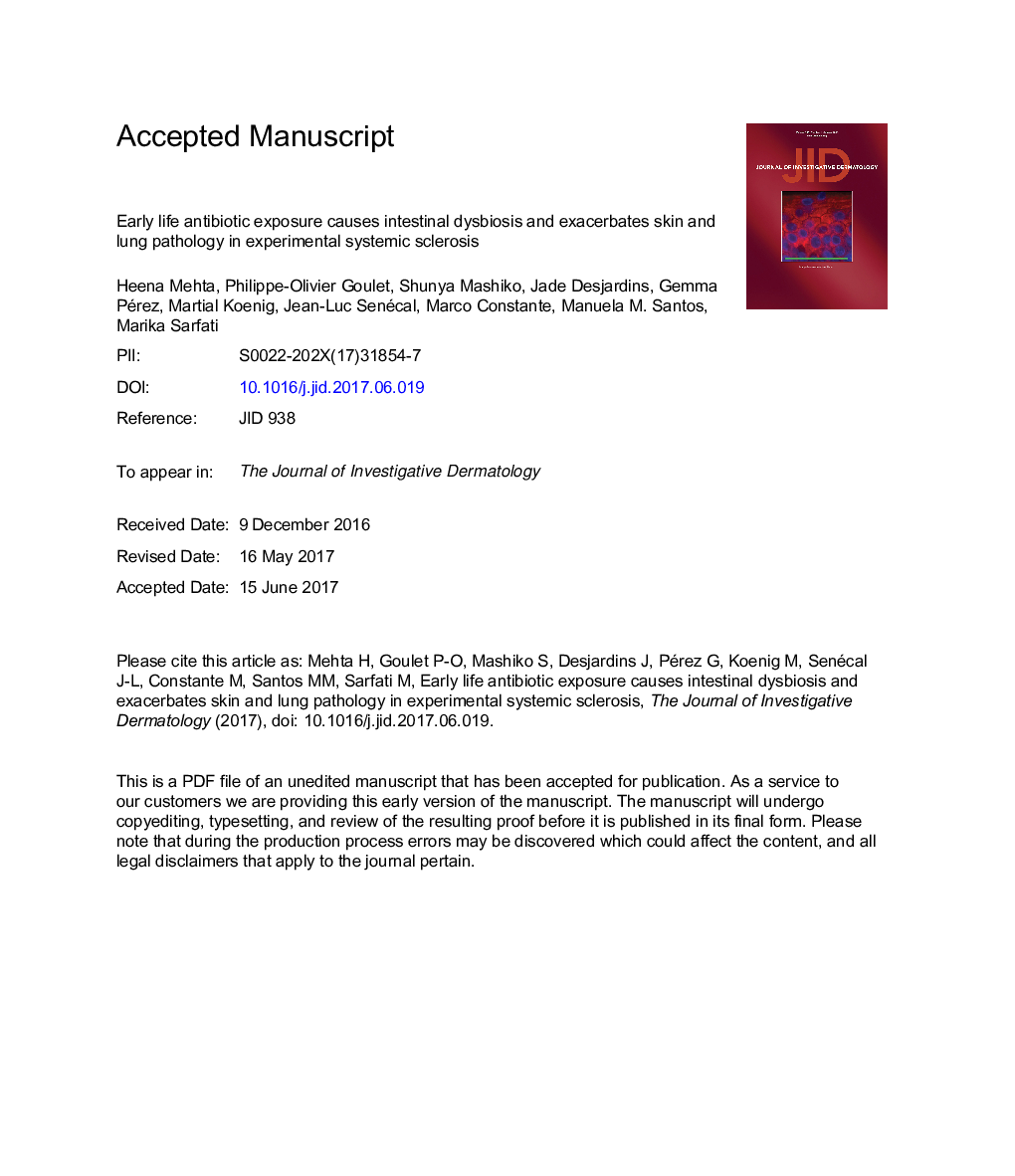| Article ID | Journal | Published Year | Pages | File Type |
|---|---|---|---|---|
| 5649150 | Journal of Investigative Dermatology | 2017 | 27 Pages |
Abstract
Patients with systemic sclerosis (SSc) display altered intestinal microbiota. However, the influence of intestinal dysbiosis on the development of experimental SSc remains unknown. Topoisomerase I peptide-loaded dendritic cell immunization induces SSc-like disease, with progressive skin and lung fibrosis. Breeders were given streptomycin and pups continued to receive antibiotic (ATB) until endpoint (lifelongATB). Alternately, ATB was withdrawn (earlyATB) or initiated (adultATB) during adulthood. Topoisomerase I peptide-loaded dendritic cell (no ATB) immunization induced pronounced skin fibrosis, with increased matrix (Col1a1), profibrotic (Il13, Tweakr), and vascular function (Serpine1) gene expression. Remarkably, earlyATB exposure was sufficient to augment skin Col5a1 and Il13 expression, and inflammatory cell infiltration, which included IL-13+ cells, mononuclear phagocytes, and mast cells. Moreover, skin pathology exacerbation was also observed in lifelongATB and adultATB groups. Oral streptomycin administration induced intestinal dysbiosis, with exposure limited to early life (earlyATB) being sufficient to cause long-term modification of the microbiota and a shift toward increased Bacteroidetes/Firmicutes ratio. Finally, aggravated lung fibrosis and dysregulated pulmonary T-cell responses were observed in earlyATB and lifelongATB but not adultATB-exposed mice. Collectively, intestinal microbiota manipulation with streptomycin exacerbated pathology in two distinct sites, skin and lungs, with early life being a critical window to affect the course of SSc-like disease.
Keywords
Related Topics
Health Sciences
Medicine and Dentistry
Dermatology
Authors
Heena Mehta, Philippe-Olivier Goulet, Shunya Mashiko, Jade Desjardins, Gemma Pérez, Martial Koenig, Jean-Luc Senécal, Marco Constante, Manuela M. Santos, Marika Sarfati,
